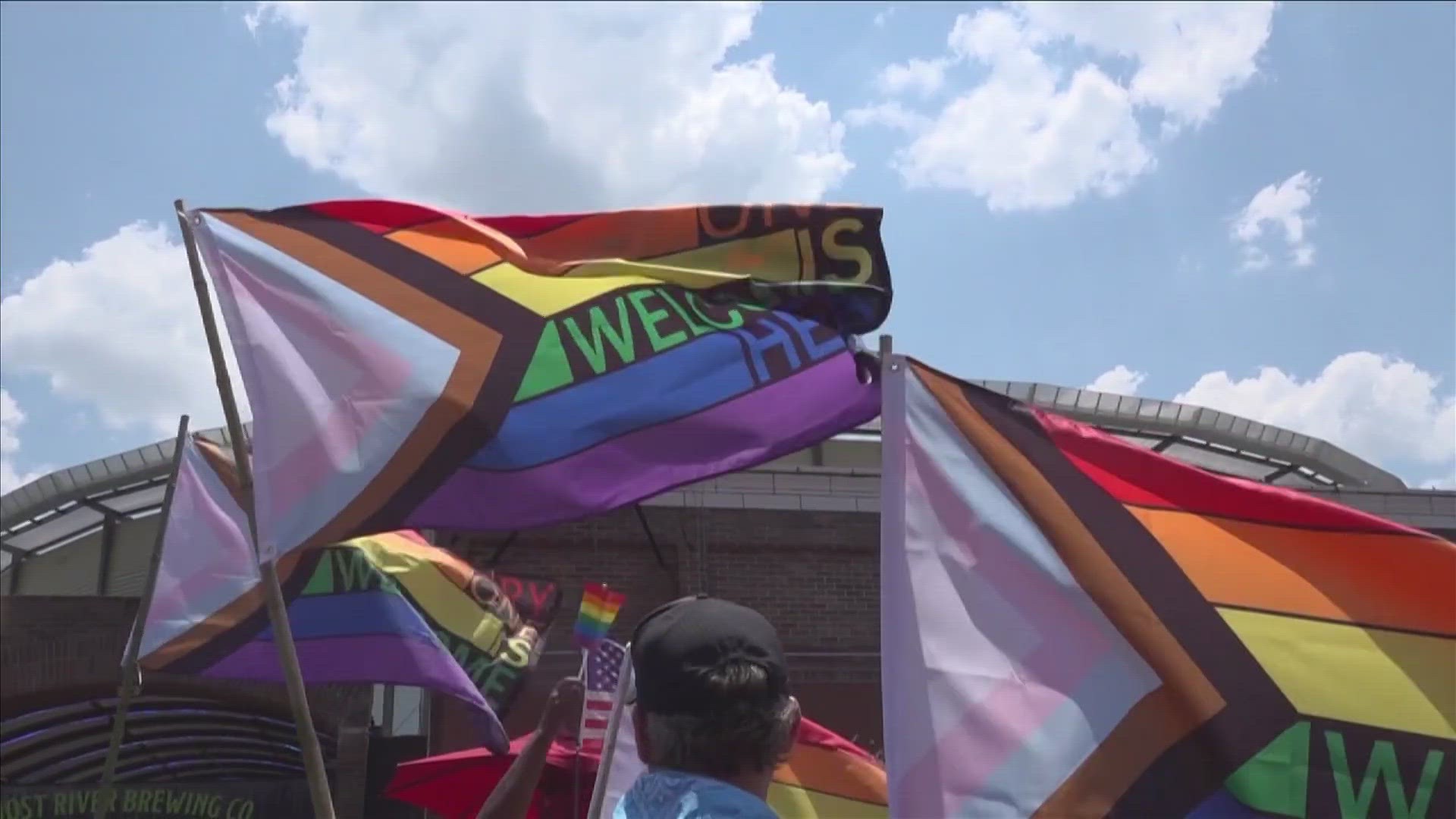MEMPHIS, Tenn. — As LGBTQ+ advocates celebrate a federal judge's ruling declaring Tennessee's so-called anti-drag show law unconstitutional, questions remain over whether the law will be enforced after the court declared that the decision only applied to the state's most populous county.
Last week, U.S. District Judge Thomas Parker ruled that the first-in-the-nation law was "unconstitutionally vague and substantially overbroad," and encouraged "discriminatory enforcement."
The ruling came just as many Pride events were scheduled across the heavily conservative state, including events where drag performers were expected to appear publicly and many of which were designated for all ages.
Yet even after Friday's ruling, questions remain about how prosecutors will respond. Attorney General Jonathan Skrmetti said in a statement that the law remains in effect outside of Shelby County, which encompasses Memphis. However, Shelby County District Attorney Steve Mulroy told reporters Tuesday that he believes district attorneys won't enforce a law that a federal judge says violates the First Amendment.
"We are reviewing the order and expect to appeal at the appropriate time," Skrmetti said.
The lawsuit seeking to overturn the legislation was spearheaded by a Memphis-based LGBTQ+ theater group, Friends of George, which argued that the law would negatively affect them because they produce "drag-centric performances, comedy sketches, and plays" with no age restrictions.
Initially, the complaint listed Mulroy, Republican Gov. Bill Lee and Skrmetti as defendants. The plaintiffs later agreed to dismiss the governor and the attorney general as defendants, — although Skrmetti continued to represent Mulroy.
Because Mulroy's authority only applies within Shelby County, Parker's ruling applied solely to that jurisdiction.
Mulroy told reporters Tuesday that the Trump-appointed judge was clear the statute violated the First Amendment.
"Therefore, I think it is unlikely, or should be unlikely, that other DAs around the state will enforce it," he said. "And then, if they do attempt to enforce it, I think the defendant will have a very strong First Amendment defense."
Mulroy, a Democrat, added that he was "probably never been happier to lose a lawsuit."
"I've always thought that the drag show bill was a solution in search of a problem and that by chilling free expression and making the LGBT community feel targeted has done more harm than good," he said.
Gov. Lee has refused to weigh in on whether district attorneys should continue enforcing the law. Instead, the Republican said he would defer to Skrmetti about enforcement.
Lee added that he had not spoken to the attorney general about Parker's ruling and that he "no plans to" because "it's in the judicial branch."
"That bill was created to protect children for the state. I'll continue to do that whenever we can," Lee said.
Tennessee's Republican-dominated Legislature advanced the anti-drag law earlier this year, with several GOP members pointing to drag performances in their hometowns as reasons why it was necessary to restrict such performances from taking place in public or where children could view them.
Notably the actual word "drag" doesn't appear in the statute. Instead lawmakers changed the state's definition of adult cabaret to mean "adult-oriented performances that are harmful to minors." Furthermore, "male or female impersonators" were classified as a form of adult cabaret, akin to strippers or topless dancers.
The law banned adult cabaret performances from public property or anywhere minors might be present. Performers who broke the law risked being charged with a misdemeanor or a felony for a repeat offense.
While LGBTQ+ rights advocates praised the ruling, Republican lawmakers quickly urged Skrmetti to appeal the decision. So far, he hasn't.
The drag law marks the second major proposal targeting LGBTQ+ people passed by Tennessee lawmakers this year. Lee also signed into law GOP-backed legislation banning most gender-affirming care for minors, which is being challenged in court.

